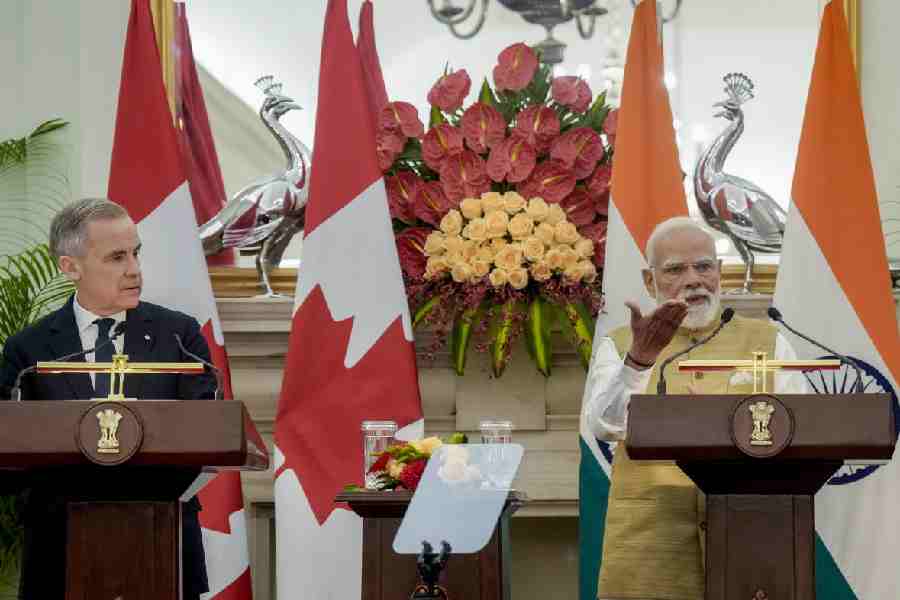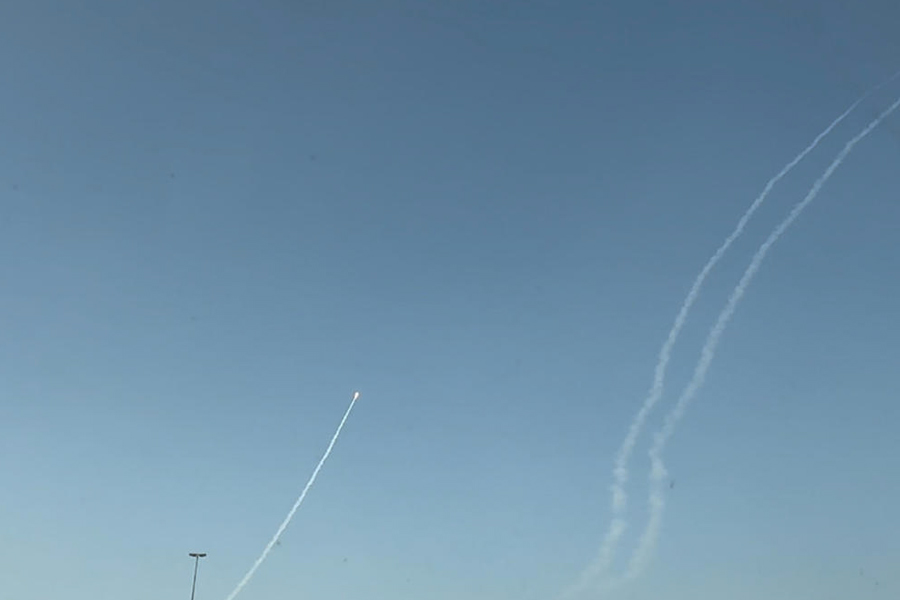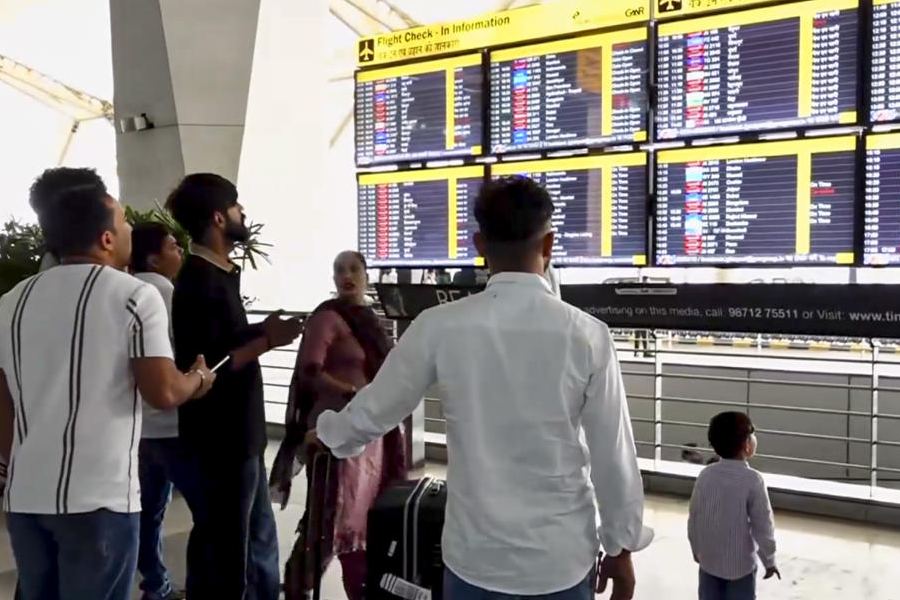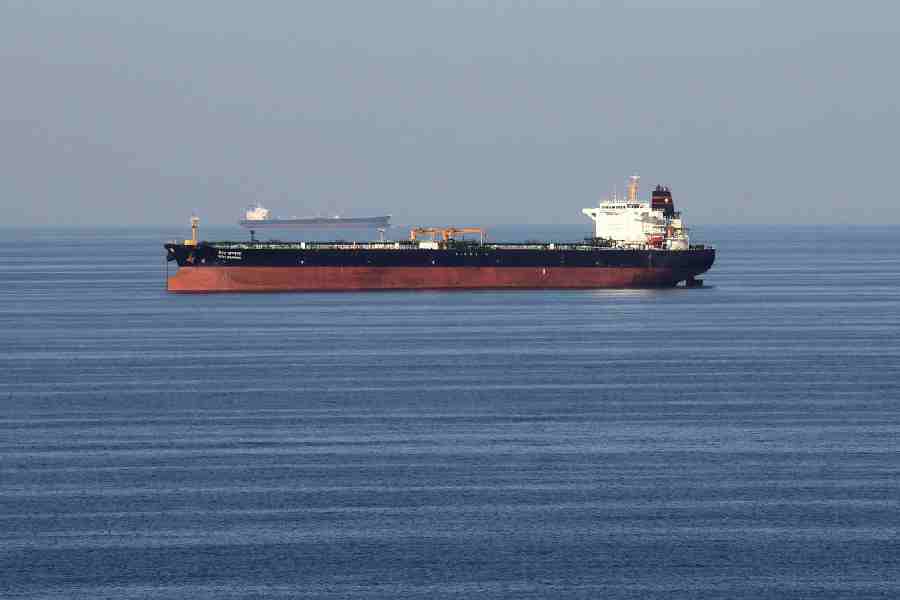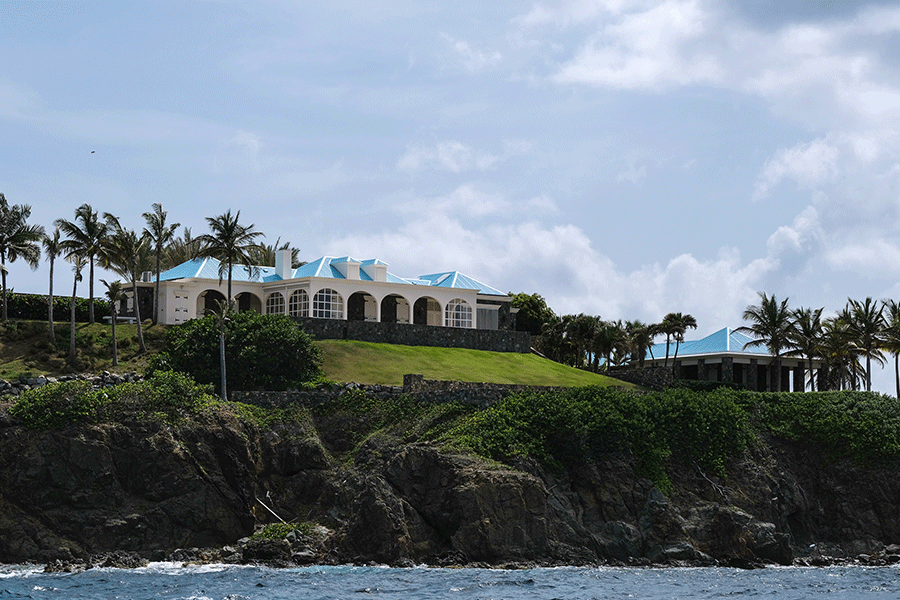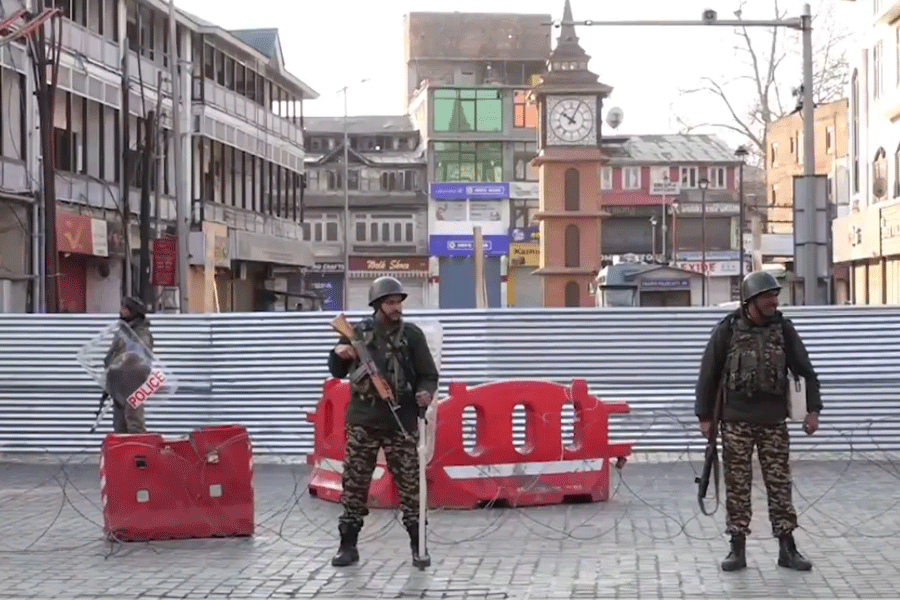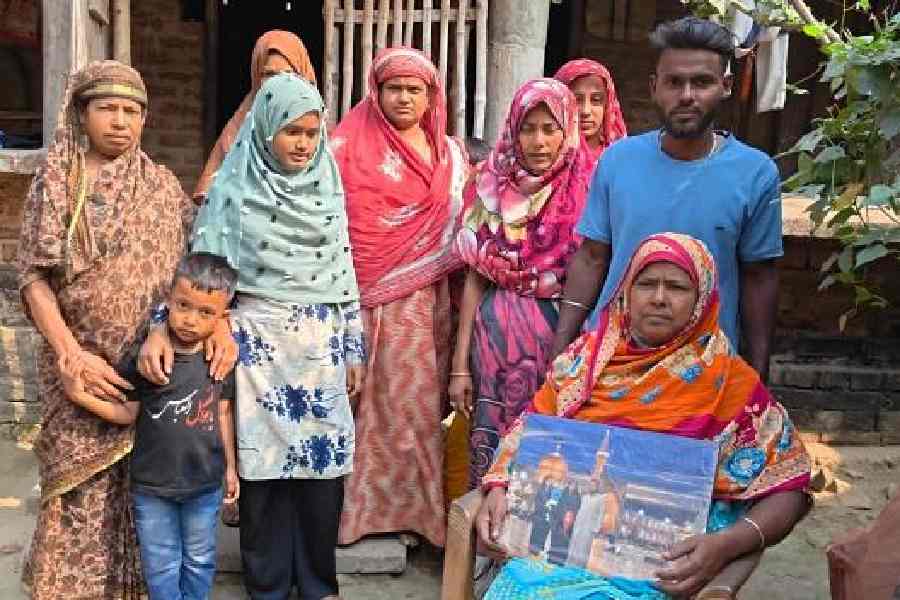 |
| Members of the Pakistani delegation at Wagah. (PTI) |
Wagah (Punjab), July 4: Another dawn breaks at the picturesque Wagah border. The Indian Tricolour and the Pakistani Star and Crescent rise up flag poles on either side, cutting through a mild morning haze, as guards clank open the iron gates of the checkpost which marks the divide between the two nations.
Under the watchful eyes of border guards and television camera crew from both sides, a waiting crowd of Pakistani businessmen and their wives makes its way slowly across the short stretch of tarmaced no-man’s land towards the Indian customs shed.
Those few steps are perhaps symbolic of recent attempts by India and Pakistan to try and erase the bitter history of the past 50 years, which saw three wars and two border conflicts between the nuclear neighbours.
“We think things will go better this time round and we will be able to influence governments on both sides to open up,” said Karachi-based textile mill owner Anwar Ahmad Tata (no relation of India’s Ratan Tata).
Tata, whose family migrated to Pakistan from Calcutta in 1947, is part of the 51-member delegation that has made its way across the border to explore trade opportunities here.
The delegation is the most high profile of a number of Track II peace initiatives which the two nations have launched in the last few weeks.
Political leaders from both sides have been talking of holding peace talks in the last few months even as they have accused each other of spoiling the moves with covert actions against each other’s state.
“We are moving towards talks. There are overtures from both sides,” Pervez Musharraf told a news briefing at a Paris conference on investment opportunities in Pakistan today.
But Indian officials are still angry about a sneak terrorist attack on an army camp near Jammu, which they blame on terror outfits operating out of Pakistan-occupied Kashmir.
Today, officials from both sides were absent at the borders, but unobtrusive, shabbily dressed Indian and Pakistani intelligence agents kept watch and the Pakistani delegation’s hosts, Ficci, stayed in touch with North Block, reporting back on talks held.
Pakistani businessmen, too, made it clear they would not have crossed the border without a nod from their foreign office. “We are so used to being unfriendly that it will take time to ring in real peace…. But as you can see, things are happening,” remarked Tata.
Relations are still at rock bottom if a barometer reading is taken of the friendliness or hostility of border guards towards each other.
“They no longer talk to each other or exchange cigarettes,” pointed out Subeg Singh, one of the licensed porters who load and unload the few parcels of fruits and spices that make up the meagre business between the two countries through Wagah, the neighbours’ principal land border crossing.
Official trade between the two nations is small, even by South Asian standards. At $200-250 million a year, it is a quarter of India’s trade with Bangladesh, a third of the trade with Sri Lanka and less than half the trade with the tiny mountain kingdom of Nepal.
Unofficial trade between the two is, however, far larger, estimated at $2 billion, but routed through middlemen in Dubai and Singapore who earn fat profits out of the unwillingness of the two neighbours to even talk business with each other.
Ficci’s additional secretary-general Krishan Kalra said: “We estimate trade between us could double to $4 billion in a short span of time, if the wrong signals are forgotten and right signals made.” Wrong signals include Pakistan refusing till date to grant India the most favoured nation status, a move which would reduce taxes and quotas on Indian exports to levels similar to those for other member states of the WTO, and India’s stinginess in granting visas to Pakistani businessmen.
Both sides admit they are losing money from their unwillingness to hold talks. For instance, Pakistan is the third largest importer of tea but hardly any of it is bought from its neighbour, the world’s biggest tea producer. Instead, Pakistan looks to the east African state of Kenya for nearly 60 per cent of its tea imports and for the rest, to Bangladesh and Sri Lanka.
The Indian tea industry is eagerly eyeing the future of Indo-Pak trade talks as it has a surplus to sell while Pakistan, which buys between 110 and 120 million tonnes of tea a year, needs cheaper suppliers.
The pharma and automobile industries also see great opportunities as price differentials between the two markets are immense. A Suzuki 800 mini-car costs 20 per cent more in Pakistan and antacid tablet Zinetac costs 10 times more.
“Our traders are on the look-out — if more land routes could be opened up and problems with visas sorted out,” said Mir Wali Muhammad Badini, a senator in the Pakistan Parliament and president of the Quetta Chamber of Commerce.


